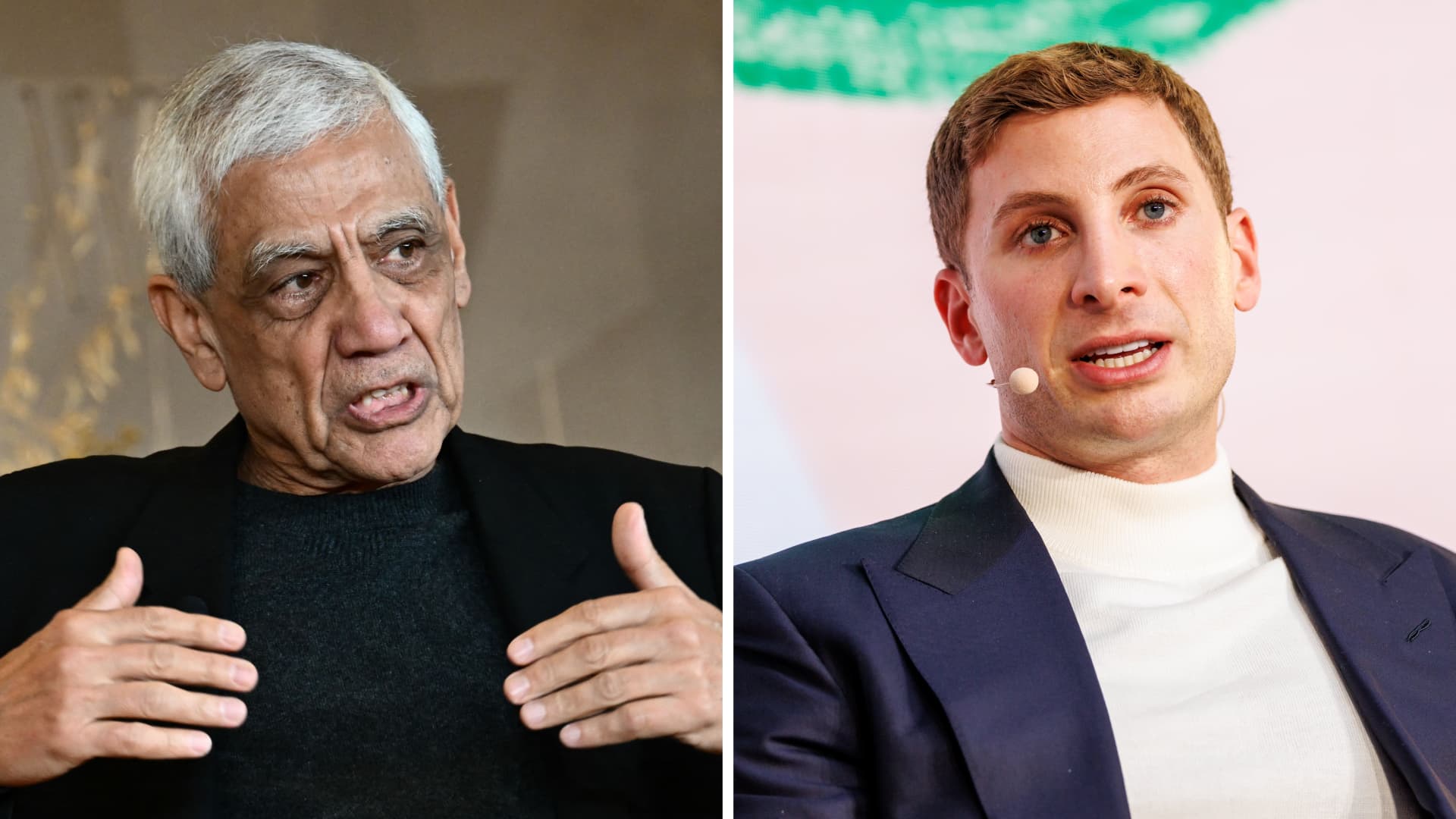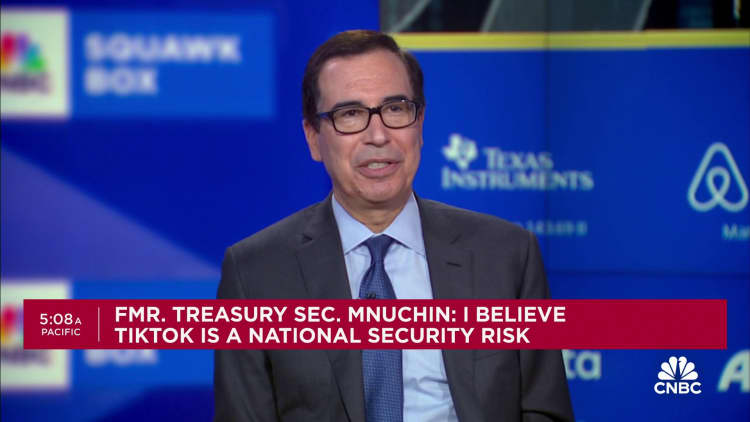

Vinod Khosla and Jacob Helberg.
Patrick T. Fallon | AFP | Picture Alliance | Getty Images
Investor Vinod Khosla and Palantir advisor Jacob Helberg penned an open letter Thursday calling on senators to pass a bill that would force the divestiture of Bytedance-owned TikTok in the U.S.
Describing the social media platform as “a weapon of war,” Helberg and Khosla compared the bill with decades-old restrictions on foreign ownership of U.S. media outlets.
“Would you let North Korea or Iran own a broadcast channel that 67% of teens spend almost two hours a day on?” the two wrote.
Some critics have compared the ban to a bill of attainder, given it singles out one company. In an interview with CNBC, Helberg said the comparison did not apply.
“We have a long tradition in American policymaking — sometimes we do target individual companies, when national security is at stake,” Helberg said. The bill, which was overwhelmingly passed by the House in March, would demand that Bytedance either find a buyer for TikTok or else face a ban in the U.S.
Bytedance is not sitting on the sidelines, however. The company mobilized its user base to oppose the House bill, urging its millions of users to call their congressional representatives and voice their opposition. The in-app notifications prompted a flood of phone calls that overwhelmed some congressional offices.
Helberg said the effort was a prime example of the risk TikTok posed. “It was a live demo of precisely the kinds of concerns that we have been trying to highlight to elected officials,” he told CNBC. “All of these concerns that before were theoretical were highlighted in full Technicolor for everyone to see.”
Khosla is founder of Khosla Ventures and was co-founder of Sun Microsystems. Helberg is a senior advisor at Palantir, an artificial intelligence firm that does extensive government contracting work, including with the U.S. Department of Defense.
Both are also deeply involved with the Hill and Valley Forum, a working group first convened in 2023 to combat the influence of the Chinese government and TikTok in the U.S. Hill and Valley is slated to reconvene in May.
TikTok CEO Shou Zi Chew has also been lobbying D.C. lawmakers against a ban, meeting with Sen. John Fetterman, D-Pa., in March.
Battle lines drawn
Shou Zi Chew, CEO of TikTok, speaks to reporters outside the office of Sen. John Fetterman (D-PA) at the Russell Senate Office Building on March 14, 2024 in Washington, DC. The House of Representatives voted to ban TikTok in the United States unless the Chinese-owned parent company ByteDance sells the popular video app within the next six months.
Anna Moneymaker | Getty Images
While the letter was addressed to all senators, Helberg said that he hoped in particular that Sens. Chuck Schumer, D-N.Y., and Maria Cantwell, D-Wash., would take notice. Schumer is Senate majority leader and Cantwell is the chair of the Senate Commerce Committee.
But TikTok has seemingly received apparent support from an unexpected source: former President Donald Trump. One week after Trump met with top Republican donor and Bytedance investor Jeff Yass, the former president indicated he was opposed to a TikTok ban, saying it would give too much advantage to Meta, which owns Instagram.
Helberg said that he didn’t think Trump was fully opposed to Khosla and his efforts. “If you look at his statements, he has expressed very strong concerns about bias and censorship against conservative voices online,” Helberg told CNBC. Trump is the presumptive 2024 Republican nominee for president.
Nonetheless, Trump’s commentary, paired with opposition from China’s Foreign Ministry, has raised questions about whether a divestiture is even feasible. China has said that it is completely opposed to the sale of TikTok, which would require an export license from the government. That opposition, Khosla and Helberg wrote, “tells you what you need to know: TikTok is a ‘key political asset,’ not a commercial enterprise.”
Top investors, including former Treasury Secretary Steven Mnuchin and former Activision Blizzard CEO Bobby Kotick, are among those circling the app, which would likely carry a price in the tens of billions of dollars.
When asked what the odds between a divestiture and a ban would be, Helberg demurred.
“If the Chinese Communist Party operates in good faith and lives up to its claims, a divestiture will happen in an orderly manner,” he said. “There are lots of willing buyers in the United States.”
TikTok did not immediately respond to a request for comment.
WATCH: Former Treasury Secretary Mnuchin says he’s building investor group to acquire TikTok




